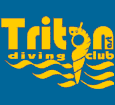|
ZENTA
MAJ 2003.
For the shooting of the movie "Giant at the bottom
of the sea - Mission Zenta" the members of the Triton
diving team made about 100 dives and filmed over 4 hours
of underwater film material. Despite of the good adaptation
to nitrogen narcosis, we discovered new details only after
watching the filmed material.
Because of that we decided to dive on this wrack using mixed
gases, so we overcome the narcosis problem and explore the
wrack in a proper manner. Like we hoped we made a few sensational
discoveries. Let's start from the beginning.
The expedition was scheduled for the mid of April. In Belgrade
we purchase all the necessary gases for a few dozens of
dives.
At the site we made the necessary calculations for gas mixing,
and analyzed all the gases before the dives.
We used TRIMIX
as a bottom mix with a equivalent narcosis depth of 40 m,
and Nitrox for decompression from 30 up. From 6 m we used
surface supplied Oxygen. This was very convenient because
we had the necessary recompression in a case if anything
went wrong.
Of coarse this kind of diving is a lot of work. The caring
of large storage gas tanks was a pain...
|
|
|
|
|
|
|
|
|
|
|
|
The weather condition were usual for this time of year. Changing
of sun and rain, winds like Bura and Jugo were not very comfortable
for diving. The visibility on the wrack was from very poor
to OK. The kiting up of deep divers and the deploying of deco
stations were a routine.
|
|
|
|
|
|
|
|
|
|
|
|
The
bottom times were from 20 to 22 min. at a depth of 73m using
the rules of thirds.
This schedule made run times between 99 and 106 min necessary,
if everything goes well.
Every diver had a backup in a case of loosing deco gases.
A safety diver was placed in the water to assist the decompression.
The deco gases were duplicated and the divers carried them
along.
|
|
|
|
|
|
|
|
|
|
|
|
|
|
|
|
|
We used the bottom time to get a better picture of the inside
of the wreck. The corridors in battle ships are very narrow,
and the tumbled equipment made the penetration even harder.
We decided to leave our deco bottles outside of the wrack.
|
|
|
|
|
|
|
|
|
|
|
|
|
|
|
|
|
|
|
|
|
The inside
was very interesting but we were happy when we returned
to our deco bottles and put them on.
We were a little bit worried. Inside a silty old wrack,
deformed metal lying all over the place, diving a labyrinth
of corridors at a depth of 73 m without our life supporting
deco gas was a little bit spooky.
It was a surprise to us that after so many dives we were
able to find new interesting objects even on the deck.
We always asked ourselves where the front mast disappeared,
and were surprised that it was right in front of our noses.
The ship bell, lying on the deck looked like it always ringed
and we were unable to see it. The front deck 120 mm cannon
also looked strange to us, with the beautiful moray eel
living in the barrel.
|
|
|
|
|
|
|
|
|
|
|
|
This time we also had the opportunity to se the destruction
of hundred of square meters of abounded nets, becoming nets
of death for many underwater inhabitants.
We gave them the name "The nets of death". After
so many years, not being useful to anybody these nets take
lives
|
|
|
|
|
|
|
|
|
|
|
|
|
|
|
|
|
|
|
|
We
also noticed that the wreck has been visited by other divers,
expeditions from Germany, Austria, Italy and Hungary. Some
of them left visible marks of their presence. We think that
this underwater monument has to be left untouched to be a
whitens of navy battles.
Every deep dive has his decompression phase. This is the longest
and the most tiring part of the dive. Decent to the first
deco station, gas change, decent and so on. We start to fill
cold, hungry and tired. After a few days diving like that
we have the feeling that we are not doing anything else than
hanging around infinite blue of the water. The only thing
you hear is the breathing of you and your dive partner.
|
|
|
|
|
|
|
|
|
|
|
|
|
|
|
|
|
|
|
|
|
When
you get out of the water wonderful underwater film material
is left and the feeling that you once again accomplished
something important.
This time We leave this wonderful underwater monument whit
a even greater admiration and the hope that the wrack will
stay like that for a long time, so many divers can see it
and feel the the peace of history.
*This
dives were executed by professionals. We do not suggest
untrained and wrong equipped divers to tray to make such
dives. The limit for recreational diving is limited to 40m.
|
|
|
|

